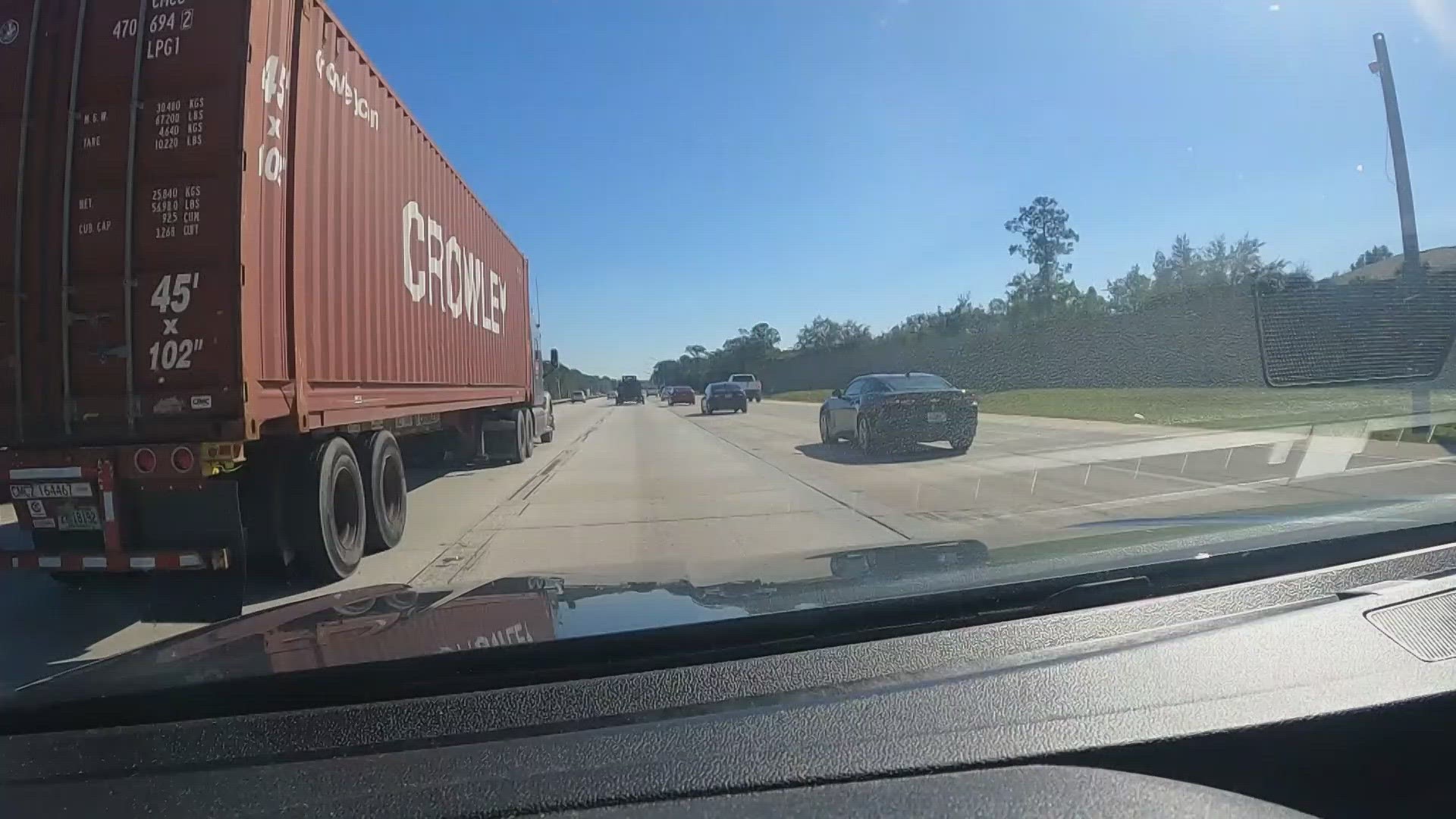ST. JOHNS COUNTY, Fla. — Slow-poking in the left lane on some of Florida’s major roadways could be against the law soon.
Florida lawmakers are looking at a bill that would make the left lane on interstates a passing-only lane.
Under the current law, so long as there isn’t someone actively trying to pass you in the fast lane, drivers can cruise in it for as long as they like.
Lawmakers will have their say on the idea soon, but drivers already sharing their thoughts.
“That’s the fast lane. If everyone around me is going 60 and it’s a 75, I’ll drive in the fast lane," said Jacksonville Driver Karin Tucker.
Tucker has no problem driving in the left lane if the situation calls for it. Every once in a while, she finds herself behind someone just poking along in the fast lane.
“I think after enough people pass them on the right, they get the picture and get off. Or, you just blink your lights at them," said Tucker. "Sometimes they pay attention, sometimes they don’t, and I just pass them on the right.”
A bill working its way through the Florida State House would make sitting in that lane – whether you’re going the speed limit or not – illegal.
It would make the left lane on all roadways 65 mph or higher exclusively a passing lane.
Once drivers get past the vehicle in the middle lane, they'll have to get back over.
“It’s not safe, it’s dangerous if they’re hogging the left lane," said Jacksonville Driver Lisa Harvey. "That’s the fast lane. I think it’ll work.”
There’d be exceptions, of course, like if traffic is directed to that lane because of debris or an emergency, or if a driver is getting ready to exit to the left.
“I don’t know, I’d have to take a lot of consideration before they pass a law like that," said Greg Celi, who was driving back to South Carolina after spending Christmas in Naples. "Maybe some test driving and get out there and really sample some driving before they pass the law.”
Breaking this law would be a non-criminal traffic violation – those start at $60 a pop but can go up to a few hundred.
It still has a lot of hoops to jump through when the legislative session starts in the New Year, but if it becomes law, it would take effect at the beginning of 2025.

